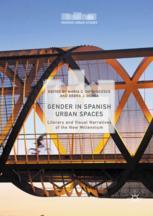

Most ebook files are in PDF format, so you can easily read them using various software such as Foxit Reader or directly on the Google Chrome browser.
Some ebook files are released by publishers in other formats such as .awz, .mobi, .epub, .fb2, etc. You may need to install specific software to read these formats on mobile/PC, such as Calibre.
Please read the tutorial at this link: https://ebookbell.com/faq
We offer FREE conversion to the popular formats you request; however, this may take some time. Therefore, right after payment, please email us, and we will try to provide the service as quickly as possible.
For some exceptional file formats or broken links (if any), please refrain from opening any disputes. Instead, email us first, and we will try to assist within a maximum of 6 hours.
EbookBell Team

4.0
96 reviewsThis edited collection examines the synergistic relationship between gender and urban space in post-millennium Spain. Despite the social progress Spain has made extending equal rights to all citizens, particularly in the wake of the Franco regime and radically liberating Transición, the fact remains that not all subjects—particularly, women, immigrants, and queers—possess equal autonomy. The book exposes visible shifts in power dynamics within the nation’s largest urban capitals—Madrid and Barcelona—and takes a hard look at more peripheral bedroom communities as all of these spaces reflect the discontent of a post-nationalistic, economically unstable Spain. As the contributors problematize notions of public and private space and disrupt gender binaries related with these, they aspire to engender discussion around civic status, the administration of space and the place of all citizens in a global world.